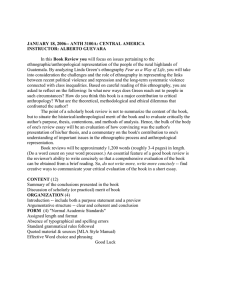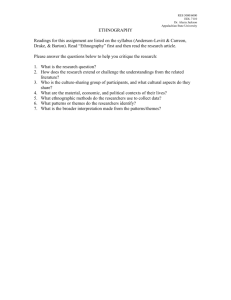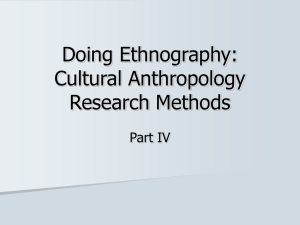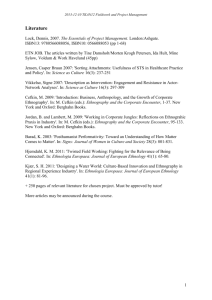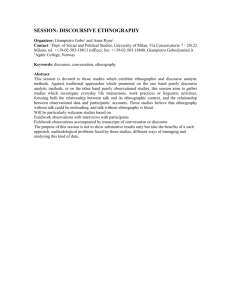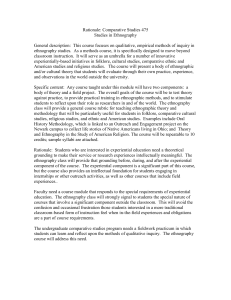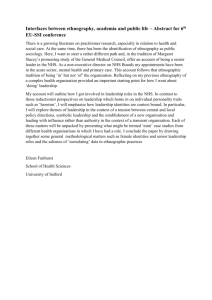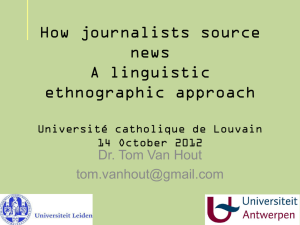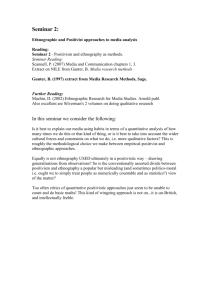Dvora Yanow Slides
advertisement
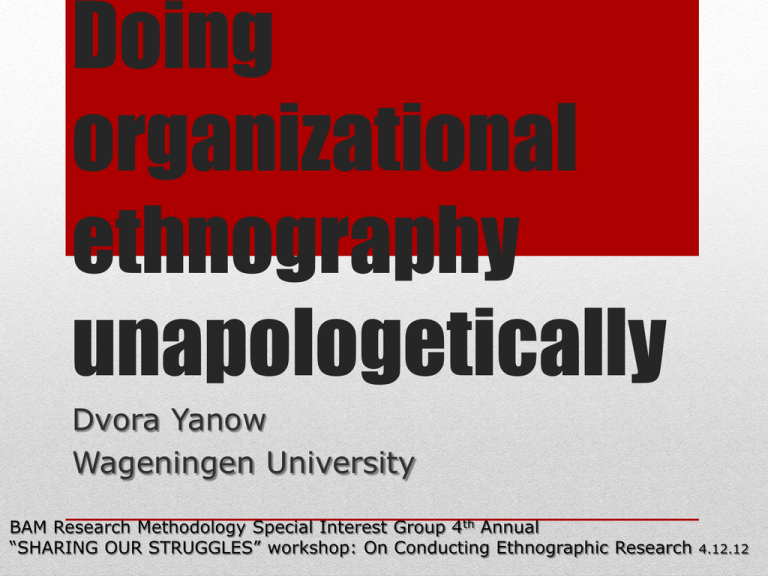
Doing organizational ethnography unapologetically Dvora Yanow Wageningen University BAM Research Methodology Special Interest Group 4th Annual “SHARING OUR STRUGGLES” workshop: On Conducting Ethnographic Research 4.12.12 1. stop being apologetic!!! London: Routledge, 2003, 1-39; pp. 2, 9 2. but: are there aspects of ethnography in anthropological history and usage that we might be inheriting, to our ill? [Salemink 2003: 2] [Salemink 2003: 21] [Salemink 2003: 22] shades of organizationl culture!!! [see Kunda 1992] 3. other harms? a. Georges Condominas: …anthropologist Georges Condominas (1973, 4) found, to his horror, that the United States Department of Commerce, without his authorization and hence in direct violation of international copyright law, had translated Condominas’s book on Vietnam from French to English and distributed copies to Green Beret soldiers fighting in Vietnam. Condominas learned of this from one of his study participants whom US Special Forces had tracked down and tortured. [Fujii 2012: 717] Condominas, Georges. 1973. “Distinguished Lecture 1972: Ethics and Comfort: An Ethnographer’s View of His Profession.” In Annual Report: American Anthropological Association. [Lee Ann Fujii, ‘Research Ethics 101: Dilemmas and Responsibilities’, PS: Political Science & Politics 45:4 (October 2012): 717-23; see also Salemink 2003: 4] b. Gerald Cannon Hickey: [Salemink 2003: 4] c. Oscar Salemink: [Salemink 2003: 4-5] 4. what is particular about organizational ethnography? Putting some questions on the table… • marked ethnography: political ethnography medical anthropology • combine 3 types of evidence: what people do [acts; interactions] “participant listening” [Forsey] material artifacts [ANT; science studies; space/place…] • mixed methods? always! but not mixed methodologies!! - realist ontology X constructivist - objectivist epistemology X subjectivist • studying ‘our own kind’, in terms of: educational background? class background? race-ethnic background? etc. • Venn diagram of dual roles: observing << >> participating/listening ‘scientist’ US ‘local’ stranger << >> familiar [epistemological purchase] • but do we want/need to pass? [cf. Harry Collins, ‘interactional expertise’, w/ physicists] Collins, H.M. and Evans, R.J. (2002) The third wave of science studies: Studies of expertise and experience. Social Studies of Sciences 32/2: 235–96. • Or is this [‘passing’] but one form of ethnography? >> taxonomy of OE. I need/want fluency; but I don’t [want to] lose my accent, else I lose completely the strangerness that provokes puzzles >> abductive logic of reasoning which underpins ethnographic inquiry. [see Schwartz-Shea and Yanow 2012, Interpretive research design: Concepts and processes, Routledge.]
